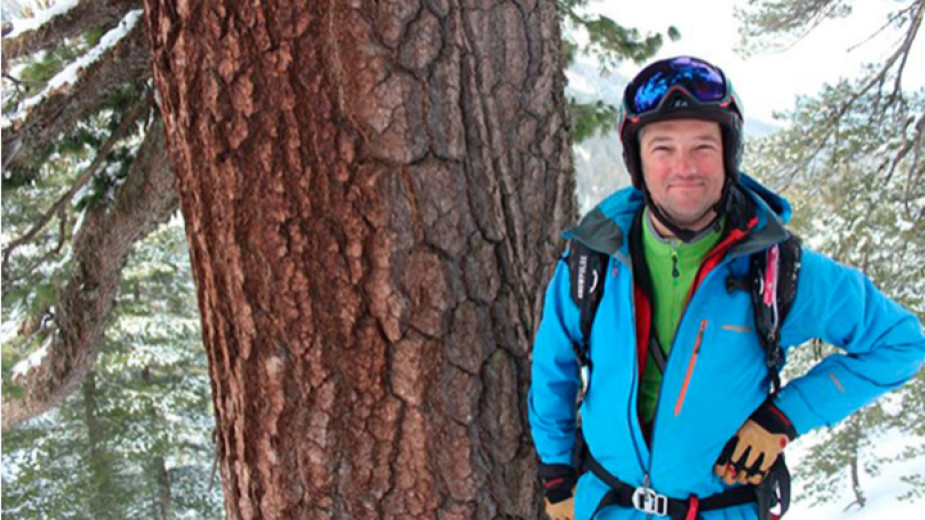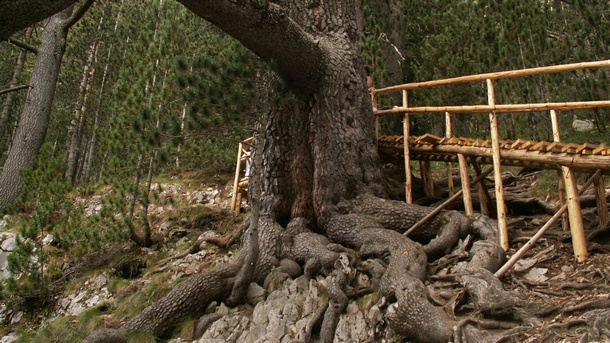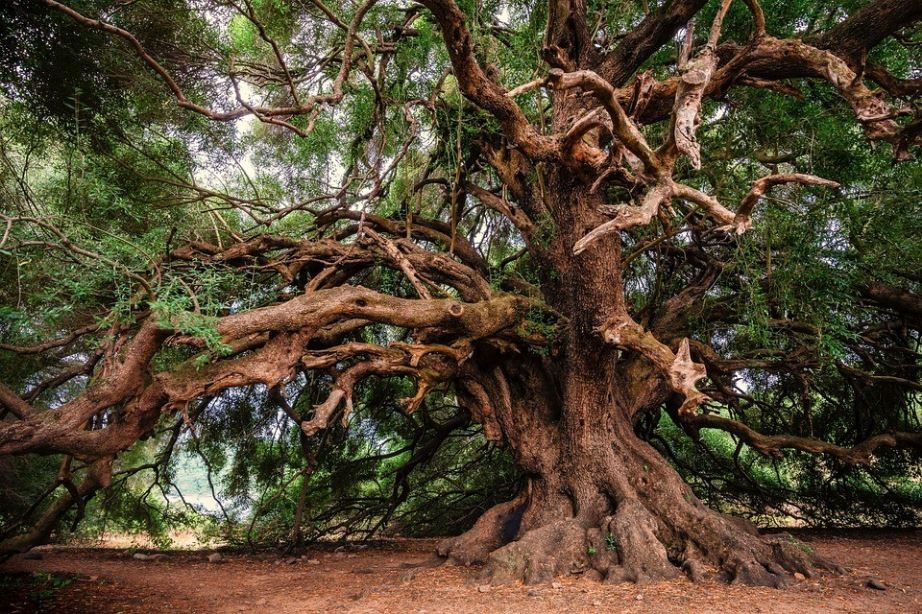 4
4
The oldest coniferous tree in Bulgaria has undergone a special "surgical" intervention and is now once again attracting tourists from all over the world.
The Baikusheva mura (Pinus heldreichii) is located in the Pirin Mountains, near the ski resort of Bansko, and is estimated to be more than 1,300 years old. A huge branch snapped recently, which led to a temporary restriction of people's access to the natural landmark. The branch had to be removed by skilled arborists, who carried out a complex operation to prevent further damage to the centuries-old fir, which is among the oldest of its kind in the entire world. "Such work should be carried out by trained specialists," Dr Momchil Panayotov, a lecturer at the University of Forestry in Sofia, said. The dendrologist described the work of his colleagues as brilliant.
"The Baikusheva mura is among the oldest trees not only in Bulgaria, but also in Europe. It is quite an impressive tree, a national treasure. This is not the first time this tree has broken a branch. If you look at an old photograph from 1914, we have one in the Museum of Forestry at the university, you can see that it has some branches that are now gone. That means over time they have broken off and been removed. Old trees grow very slowly. Usually a branch can form in the higher part of the crown, will be growing at a snail's pace. Branches that have been growing for hundreds of years do not sprout quickly."
The anscient Bosnian pine, "mura" in Bulgarian, was first discovered and described in the region of Bunderitsa in the Pirin Mountains by forester Konstantin Baikushev in 1897. Luck and circumstance have preserved the tree over time, associate professor Momchil Panayotov explained to BNR.
Fortunately, the fir tree was not destroyed by the fires that have been reported in its vicinity. "It's a matter of luck - where it has sprouted, whether there are rocks around it to protect it from other falling rocks, whether there are other trees that have protected it over the years," explains the dendrologist, adding that in such cases there is also what is known as the "longevity paradox":

"The oldest trees usually grow under more difficult conditions. When conditions are ideal, the tree grows quite fast and therefore dies earlier. When searching for old trees, I look for rocky patches, places where the tree must have struggled to grow, but this has made it more resistant," says Momchil Panayotov.
Currently, the Baikusheva mura is being studied - arborists have photographed segments of the trunk using modern equipment. The data will be analysed to find out how many cavities there are and whether the tree is rotting.
"It is good to know as much as possible about its condition as thousands of people come to see it every year. The National Park authority takes really good measures to control access. There is a stable ladder with railings for the tourists, so they can't trample on the roots of the tree as has happened in the past. I hope that the natural processes are such that it will be around for many more years to come."
The pine forests in the Pirin Mountains are a particular favourite of Momchil Panayotov:
"There are two main species - white pine (Pinus peuce) and Heldreich's pine (Pinus heldreichii), which are unique worldwide. There are very few such forests in Albania, Greece, Montenegro and that's it. I love these forests, but I also love the beech forests in the Balkan Mountains and the spruce forests in the Rila and Rhodope Mountains. I have very special feelings when I'm in Kamchia and Ropotamo (southeastern Bulgaria), where it's a completely different type of forest. People should try to visit these places to see how diverse our nature is."
There are hardly any forests in the world that have not been affected by human activity. However, Bulgaria is among the countries with some of the best preserved forests in Europe, says Associate Professor Panayotov:
"I can say this with confidence because I have worked in many of these forests and we have compared data with international teams. It turns out that the beech forests in the Balkan Mountains are the oldest of their kind in Europe. Can they be used for responsible tourism? Yes, and Bulgaria is a good example. In most reserves we have authorised hiking trails on which one can admire the forest. This attracts more visitors, which is good, because the local community depends on tourism and in order to better appreciate the forest, they need to see the benefit. It is really wonderful to be able to walk into such a forest and know how special it is. Most people feel extremely happy.

The 147th anniversary of the liberation of Sofia from Ottoman rule was celebrated with a historical re-enactment in the capital's North Park. "The re-enactment recreates the three battles of the villages of Sarantsi, Dolni Bogrov and Vrazhdebna and..
The Sofia Zoo proudly announced a record number of animals born in 2024. "Our wolf pack grew by nine wolf pups. We welcomed a baby zebra, kudu antelopes and several giraffe calves. We also had additions from the primates, the Asian small-clawed..
In 2024, Bulgarians actively used the Google search engine to get informed about topics reflecting what was happening in the world and in this country. Bulgarian athletes once again proved that they can inspire and arouse national pride. That is why..
The clock on the facade of the State Puppet Theatre in Stara Zagora has long been a symbol of the city. It was set in motion in 1977 and is unique on..
The year 2024 was marked by political instability and confrontation - not so much over ideas for solving Bulgaria's long-standing governance puzzle, but..

+359 2 9336 661
